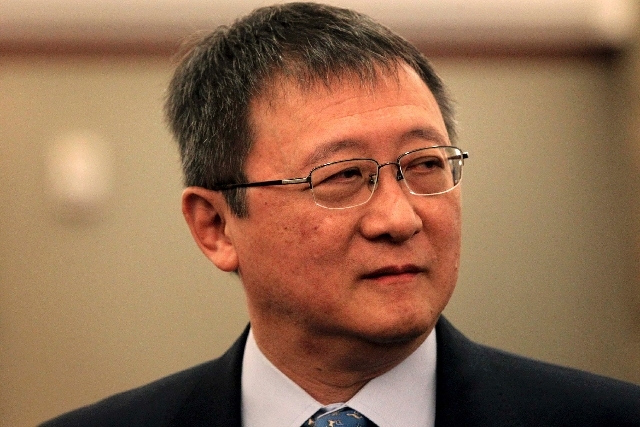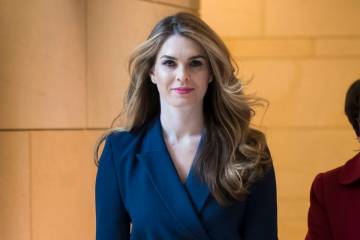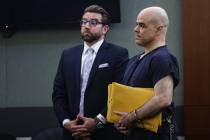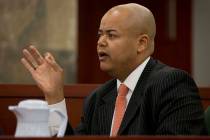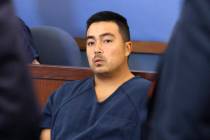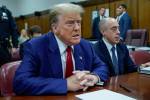Question of signed contract arises in lawsuit against Las Vegas Sands
How could Richard Suen have gone so long in his dealings with Las Vegas Sands Corp. without a final, signed contract?
Is typically business conducted in China and Macau without the kind of documents that are standard fare in the West?
These were just two of the nearly 70 questions that Suen, the one-time consultant to the company, fielded from the 14 people in the jury box on Friday. Some are alternates but have not been publicly designated.
With the jury questions, Suen, who has sued the company for a $328 million fees for what he contends was his help in obtaining the company’s highly profitable position in Macau, finished an entire week on the witness stand.
More than one juror wondered about the whereabouts an employment pact, which Suen claims promised him a
$5 million fee plus 2 percent of Sands’ net profits in Macau.
Then-President and Chief Operating Officer William Weidner included the terms in a fax sent to Suen in September 2001, quickly followed by a Suen fax accepting. Suen views this a contract even without a paper carrying both sides’ signatures on it.
But for other deals he conducted in this Hong Kong-based trading business, Suen said he used more formal arrangements.
Although not widely known, jurors have been able to ask their own questions in Nevada, one of a handful of states that has approved the practice, for about a decade. The option is left to the preference of individual judges.
Clark County District Judge Rob Bare said he likes the practice as a way of keeping jurors “engaged” in the trial.
After attorneys on both sides finished with Suen, jurors submitted written questions to the judge. The same procedure was used with Weidner and Sands Chairman and CEO Sheldon Adelson.
Bare reviewed questions in a huddle with attorneys in front of the bench, with a white noise machine drowning out the conversation, before reading the questions himself to Suen. Some he skipped.
Juror questions also went in several other directions, including the following:
■ What Suen would do with the money if he won the case? Answer: Forty percent would go to his company, Round Square Co. Ltd., he said, and the other 60 percent would be split between two associates.
■ Would he work for Sands in the future? Answer: “I don’t think Mr. Adelson would want me,” Suen said.
■ As the leader of the team working on the Sands project, should he have known what all his colleagues were doing? Several times previously, he testified he did not always follow their work in detail.
Answer: “He would give overall direction,” he said, “then I don’t chase after them.”
Sands attorney Richard Sauber made another attempt to introduce, through a follow-up question to Suen, a Reuters report quoting an unidentified Chinese government official that Beijing took no role in awarding the Macau license.
Bare turned it down because it would be considered hearsay, but Bare allowed the possibility that Sands could bring in the statement if it were officially certified.



